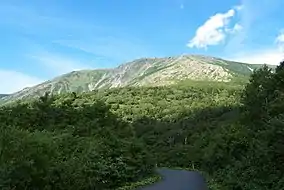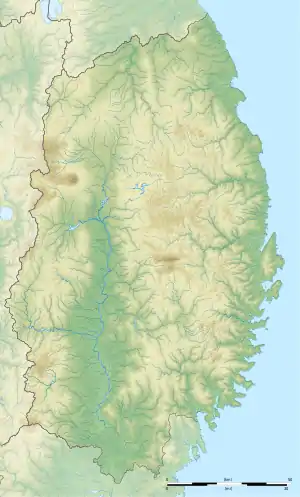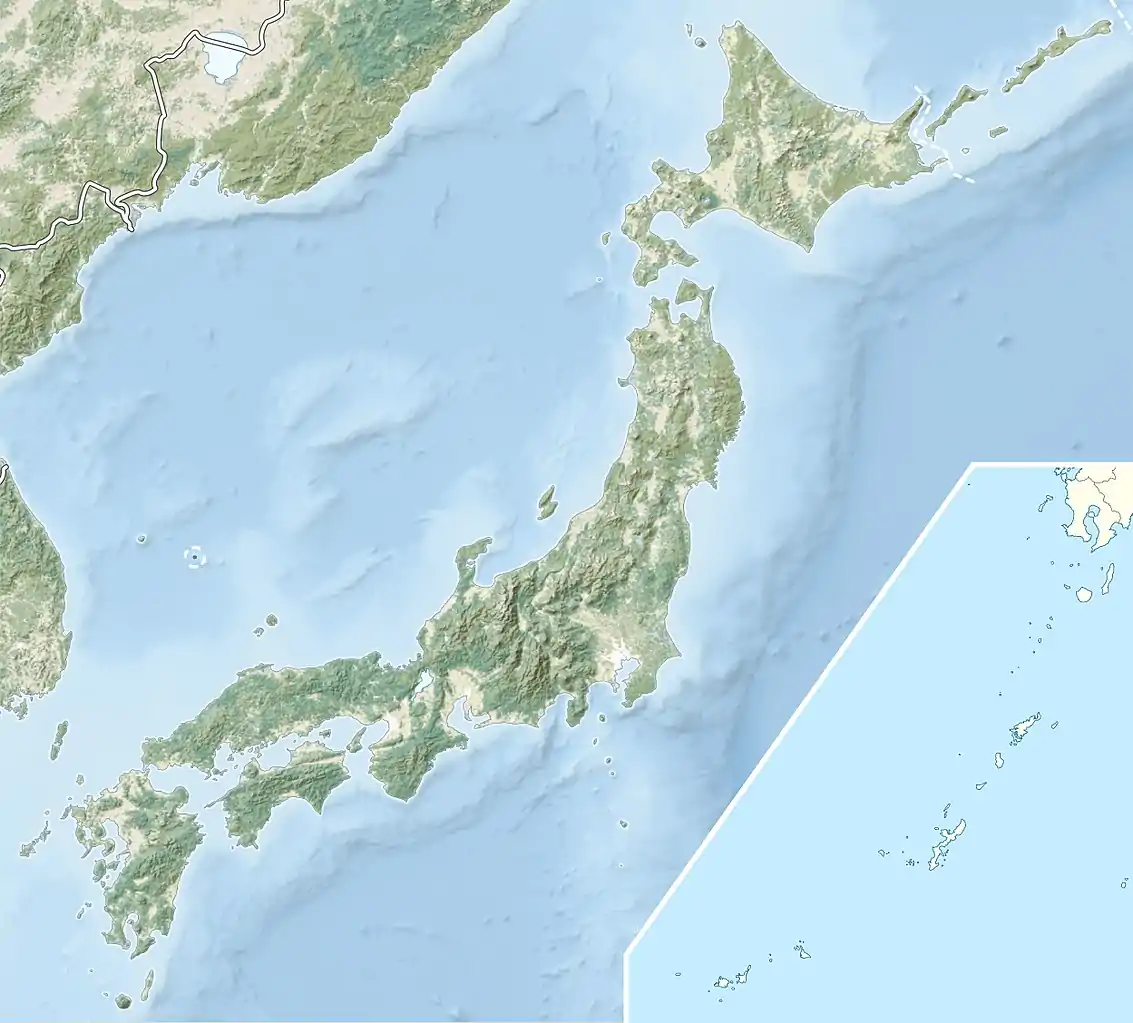Hayachine Quasi-National Park
Hayachine Quasi-National Park (早池峰国定公園, Hayachine Kokutei Kōen) is a quasi-national park in central Iwate Prefecture, in the Tōhoku region of northern Japan. It is rated a protected landscape (category II) according to the IUCN.[1]
| Hayachine Quasi-National Park | |
|---|---|
| 早池峰国定公園 | |
IUCN category II (national park) | |
 Mount Hayachine (1,914 m) | |
 Hayachine Quasi-National Park  Hayachine Quasi-National Park (Japan) | |
| Location | Iwate Prefecture, Japan |
| Coordinates | 39°30′32″N 141°29′35″E[1] |
| Area | 54.63 km2 (21.09 sq mi) |
| Established | 10 June 1982 |
Established in 1982, the park's central features are Mount Hayachine (1,914 m (6,280 ft)) and Mount Yakushi (薬師岳) (1,645 m (5,397 ft)).[2][3][4] The alpine zone and forest vegetation of Mounts Hayachine and Yakushi is a designated Special Natural Monument spanning the municipalities of Hanamaki, Tōno, and Miyako (former village of Kawai).[5][6] The area is celebrated for its flora and also for its place in Japanese folklore, most notably as collected in Tōno Monogatari.[2]
Like all Quasi-National Parks in Japan, Hayachine Quasi-National Park is managed by the local prefectural government.[7]
See also
| Wikimedia Commons has media related to Hayachine Quasi-National Park. |
References
- Southerland, Mary and Britton, Dorothy. The National Parks of Japan. Kodansha International (1995). ISBN 4-7700-1971-8
- "Hayachine Quasi National Park". protectedplanet.net.
- "大沼/下北半島/津軽/早地峰". National Parks Association of Japan. Retrieved 29 February 2012.
- "List of Quasi-National Parks" (PDF). Ministry of the Environment. Retrieved 29 February 2012.
- "Natural Parks of Iwate Prefecture" (in Japanese). Iwate Prefecture. Archived from the original on 27 September 2013. Retrieved 29 February 2012.
- "早池峰山及び薬師岳の高山帯・森林植物群落". Iwate Prefecture. Retrieved 29 February 2012.
- "早池峰山および薬師岳の高山帯・森林植物群落". Agency for Cultural Affairs. Retrieved 29 February 2012.
- "National Park systems: Definition of National Parks". National Parks of Japan. Ministry of the Environment of the Government of Japan. Archived from the original on 23 March 2011. Retrieved 29 August 2008.